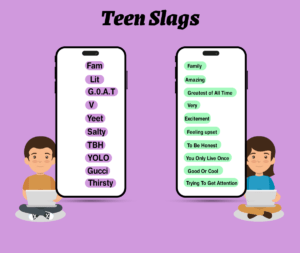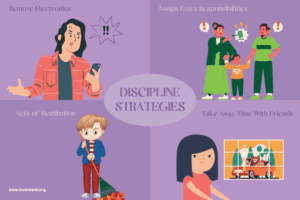Anyone can find it difficult to deal with toxic people, but introverts and highly sensitive people (HSPs) may find it especially difficult. Maintaining your mental and emotional health depends on being aware of the warning signs of toxicity and knowing how to handle these interactions.
Identifying Toxic People
When we consider toxic people, we frequently think of those who, after interacting with them, leave us feeling guilty, furious, or worn out. These people could be friends, colleagues, relatives, or even friends of friends. Toxic people frequently display deceit, persistent negativity, and a lack of accountability.
It is important to realize that you have the right to be treated with compassion and respect and that it is OK to avoid those who do not hold these values.
Signs of Toxic People:
Repeated Toxicity: Although toxic behaviors can be displayed by anyone on occasion, toxic people exhibit these behaviors regularly even when they are aware of the harm they do.
Persistent Negativity: They see rejection or failure ahead of time and turn nearly everything negative.
Mental Drainage: You feel both physically and emotionally drained after interacting with them.
Dramatic and Mess: They enjoy causing or taking part in chaos and drama.
Shifting the Blame: They are always blaming others for their own experiences, feelings, or behaviors.
Unwelcome Criticism: Without being asked to or offered a constructive critique, they frequently attempt to change the conduct, character, and personality of the other person.
Relying on others emotionally: Rather of accepting accountability for their own feelings, they expect others to make them feel good.
Controlling: Because they lack confidence in themselves, they want to control and dominate other people.
Threatening Words: To get what they want, they utilize words that incite fear.
challenge.
Resolving problems: During confrontations, they consistently ignore or invalidate the feelings and views of others.
Shame and Gaslighting: When people are questioned about their behavior, they either shame, gaslight, or deny it.
Manipulating: They frequently ignore the feelings of others as they manipulate them to achieve their goals.
Lack of Accountability: They frequently transfer their emotions onto other people and refuse to accept accountability for their actions.
judging Personality: They constantly pass judgment on and criticize other people, making nothing seem good enough.
Hardly Say Sorry: They frequently play the victim to win people over.
Have to be correct: They frequently go above and beyond to support their positions. They must always be correct.
Abuse of Others: They could tell falsehoods, have resentment, and plot revenge.
Effect on HSPs and Introverts
HSPs and introverts are especially susceptible to the harmful impacts of toxic individuals. These people can be more severely impacted by unpleasant encounters and frequently have little social energy. Anxiety, sleeplessness, and general emotional exhaustion might result from the toxic people’s never-ending drain of energy.
Techniques for Handling Toxic Persons
Establish Firm Boundaries
Your first line of defense is setting and upholding firm boundaries. This is particularly crucial if the toxic individual is someone you can’t fully avoid, like a family member or coworker.
Recognize your values and identity
It is essential to know who you are and what you stand for. Consider this:
Which fundamental beliefs guide me?
Without my relationships, who am I?
When it comes to personal time and space, where do I draw the line?
You can more successfully establish and enforce boundaries if you give these questions some thought.
Identify Cross-Boundary Offenses
Discomfiture and frustration are important warning signs that someone is stepping beyond your bounds. You can detect and deal with harmful conduct by paying attention to these feelings.
Avoid Requesting Approval
It takes no one’s permission for you to establish safe limits. Permitting yourself to:
Take some alone time to recharge.
Refuse to participate in events for groups.
Develop Your Ability to Refuse
Toxic people frequently don’t realize that you need boundaries, even though others might. When it comes to saying no, be direct and forceful.
Release Your Guilt
Setting limits could cause the toxic individual to react negatively, which would make you feel guilty. Recall that caring for yourself is not being selfish. Consider care of yourself to help you regain your composure and let go of the guilt.
Dealing with Toxic Individuals Who Are Unavoidable
It’s not always possible to stay away from toxic people, particularly if they’re coworkers, relatives, or parents. Setting and upholding firm limits and taking care of yourself are even more important in these circumstances. Furthermore, take into account the following tactics:
Minimize Exposure: Give necessary interactions priority and try to avoid spending too much time with the toxic individual.
Remain Cool and Distanced: Make an effort not to allow their actions emotionally impact you. When interacting with others, keep your composure and distance yourself.
Record encounters: To defend yourself if problems develop, keep a record of your encounters, especially within professional settings, with toxic people.
professional assistance: To handle the issue if the toxic individual is a family member or coworker, think about pursuing professional assistance or mediation.
Recognizing Emotional Triggers
Understand the emotional triggers and how toxic people use them against you. You can learn techniques to control your responses and keep your cool by being aware of these triggers. Typical emotional triggers consist of:
Feeling guilty and Duty: Toxic People frequently induce feelings of guilt or duty in you to attend to their wants. Remember that you have no control over their happiness.
Stress and fear: They could manipulate you by instilling fear in you. Use deep breathing exercises or other relaxing methods to stay rooted.
Frustration and fury: Toxic People might cause frustration or disgust. Recognize these emotions without acting on them right away to give yourself time to consider your response.
Advice for Upholding Boundaries
Reflect Often: Consistently consider your boundaries to make sure they suit your requirements and values.
Speak Very clearly: Let others know exactly what your boundaries are. Be firm without being rude.
Take Care of Yourself: Take part in restorative activities, such as going on walks in the outdoors, working out, or being mindful.
In summary
It can be difficult to deal with toxic people, particularly introverts and HSPs. You can maintain your mental and emotional health by identifying the obvious signs of toxins in relationships and putting management techniques in place. Never forget how important it is to put your happiness and health first.















